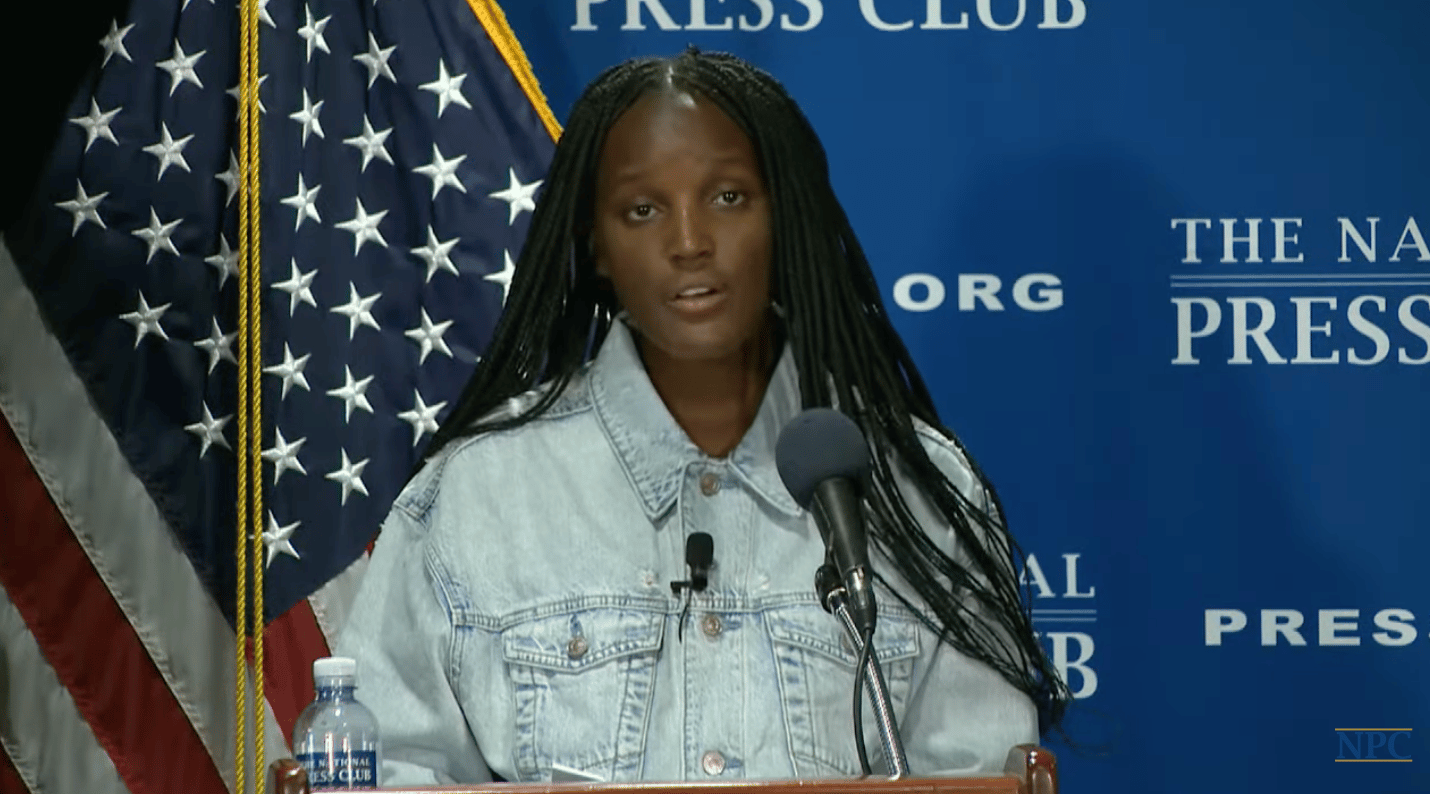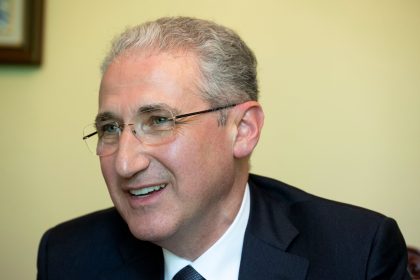Celeb Youth Climate Activist at Press Club: ‘Rich Countries … Do the Right Thing’

WASHINGTON — Vanessa Nakate, 25-year-old Ugandan climate activist and recently appointed UNICEF goodwill ambassador, visited Washington last week to meet with staff at the World Bank charged with leading international climate finance. She also spoke to the National Press Club about pushing the world’s biggest polluters to compensate victims of climate change.
After a tour of the American South, visiting regions close to the destructive flooding of Hurricane Ian, Nakate, who founded the climate-focused Rise Up Movement in Africa, claimed she learned something new about the climate crisis, even after her years of advocacy.
“It has always been clear to me that we are all facing the same storm … but we are in different boats,” she told the press and attendees at an NPC Newsmaker event. “When I came here, I also realized that many Black communities are on the front lines of environmental injustice.”
The world over, she said, climate change is not just about weather, it is also exacerbating poverty. And she believes that global institutions and prosperous countries should lead the change.
“I come from a part of the world that is … ranked among the most vulnerable to climate change in the world,” she said, adding that the whole of Africa is facing a brutal climate-induced drought, where millions are at risk of malnutrition and starvation.
“If you want to change lives,” she said, “give resources to these communities.”
“In my part of the world, farms are collapsing, livestock are perishing, and people are starving,” Nakate said. “But here in one of the most powerful cities on the earth, I see climate denial is still allowed to exist, even at the top of global institutions.”
Just weeks before her visit, David Malpass, leader of the World Bank, seemingly refused to acknowledge that fossil fuels are warming the planet, claiming he “doesn’t know” if he accepts current climate science. Malpass has since publicly stated that he agrees climate change is caused by humans burning fossil fuels.
“Climate deniers know what is happening,” Nakate insisted. “They understand the science. They just lock themselves from the reality of what is happening.”
“It’s destructive when leaders — like the president of the World Bank — don’t see the reality of what is happening,” she said. “I want to believe that he can change for the better.”
“We need rich countries like the United States to accept their role in helping to create the climate crisis [and] we need institutions like the World Bank and IMF to do the right thing. And we need all of that now. Right now.”
Nakate called on global financial institutions to “structure global finance for the global south in the form of grants, not loans,” double down on financing renewable energy infrastructure in this region where fuels and profits are exported to foreign markets, and fund disaster risk management — what has been termed ‘loss and damage.’
Her pleas especially for this “loss and damage” funding will be continuing at COP27, being held in Egypt in mid-November, where she predicts the issue of providing compensation and funding support to developing nations that have experienced losses caused by climate disruptions will be negotiated as never before.
“The fund for ‘loss and damage’ has been kicked down the road,” Nakate said. “Countries like Pakistan lie underwater and countries in east Africa lie on the edge of famine.”
“We need to remember that this can’t just be about balance sheets; it’s about people. Real people like me.”
She reminded those present that while Africa produces less than 4% of the world’s greenhouse gas, climate crises “destroy[ing] lives and wash[ing] away livelihoods” has disproportionately affected African communities, especially intensifying food insecurity.
Nakate wants the U.S., China and Europe not just to support, but to take responsibility for the damage they have caused.
“Real support is not just words or statements. Real support is actions. I hope President Biden can become a supporter,” she said, pointing out that the United States is currently one of the countries “standing in the way” of loss and damage funding.
And while she appreciates the notoriety her activism has afforded her, Nakate would actually prefer that neither the spotlight — nor the burden — would fall to her generation.
“Young people … we have organized. We have mobilized. The question needs to be addressed to the leaders, the places of power, those who hold the keys… where final decisions are being made,” she said.
“Young people have done everything they can. It’s high time we stop putting the responsibility on young people who are trying to survive our present.”
Kate can be reached at [email protected]

























